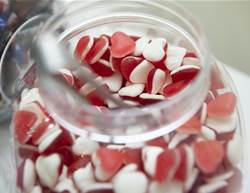Social media is abuzz with bewildering (and even worrisome) theories about cholesterol and the medications used to lower it. We sort out what’s truth, what’s error, and what’s conspiracy to help you keep your heart healthy and strong.
If your doctor has reported that your cholesterol is too high, join the club. About 8.4% of Australian (approximately 2.1 million) self-reported having high cholesterol in 2022, which has increased from 6.8% in 2011–12. The prevalence rises significantly with age, reaching nearly 29% among those aged 75 years and over.
More broadly, the National Health Measures Survey 2022–24 found that almost one in three Australian adults (30.2%) had an abnormally high total cholesterol level. Data on Australian kids also show that significant proportions of Australian adolescents have abnormal total and LDL cholesterol levels—ranging from about 31% to 46% depending on diet and other factors.
Perhaps you’ve seen social media posts claiming that lowering cholesterol is a plot by drug companies to make more money or heard fierce debates among scientists about how low is too low. Yet you also know that high blood cholesterol sets the stage for heart disease, the number one killer of women. As with much quick-hit online health info, things get oversimplified and misinterpreted, and some of it is just plain wrong.
Some truths: Cholesterol isn’t the devil—the body actually needs this waxy fat substance that it produces naturally. But the evidence is indisputable that having too much cholesterol in the blood leads it to accumulate in artery walls, and over the years these hardened deposits (called plaque) can build up, causing blockages. Plaque can also rupture and stop blood from reaching the brain or the heart, triggering a stroke or a heart attack. Lowering cholesterol reduces the chances of this.
“Heart health starts with people knowing their cholesterol numbers and understanding that persistently high levels have been clearly shown to increase cardiovascular risk,” says preventive cardiologist Dr Erica Spatz.
The ideal targets for healthy people:
-
Total cholesterol: Below 200
-
LDL (often called “bad” cholesterol): Under 100
-
HDL (“good” cholesterol— it removes excess cholesterol from the blood): 60 or higher
Cholesterol is measured via blood work done in the doctor’s office or at a lab. Generally, the test happens every three years—more often if your cholesterol runs high. Some women develop high cholesterol early on, but for many, the numbers start to creep up around menopause, says Dr Spatz.
1. Cholesterol is super important for the brain and the body.
True.
The adult body contains around 30 trillion cells, and every one of them uses cholesterol to maintain its structure and function. Cholesterol also plays a key role in producing hormones and vitamin D. Our brains are also full of the stuff, where cholesterol supports cell function.
Much of the body’s cholesterol is produced in the liver, then carried through the bloodstream to cells via particles called lipoproteins—that’s what the second “L” in LDL (low-density lipoproteins) stands for. Interestingly, the brain produces its own supply of cholesterol, since the blood-brain barrier prevents cholesterol-rich blood from entering.
Cholesterol is so essential that even calling LDL the “bad” cholesterol is misleading, says preventive cardiologist Dr Stephen Kopecky. All forms of cholesterol are vital for cell health, so “if you didn’t have LDL, you’d be dead,” he says.
That said, lowering cholesterol doesn’t usually cause harm, despite what some online influencers claim.
2. Lowering cholesterol triggers other health problems.
Mostly false.
Before statins were introduced around 40 years ago, some researchers reported links between low cholesterol and various health issues. Back then, people with lower cholesterol seemed more likely to experience depression, cancer, cognitive decline, diabetes and other concerns. But since the 1990s, more robust, high-quality studies have shown that low cholesterol doesn’t directly cause these problems.
“Concerns that very low cholesterol can be harmful are not supported by rigorous scientific data,” says preventive cardiologist Dr Laurence Sperling.
For example, one study involving nearly 20,000 participants found no link between low cholesterol and increased rates of depression. Other research has shown no causal relationship between low cholesterol and conditions like cancer, liver disease or Alzheimer’s disease. This makes sense, given that cholesterol in the bloodstream doesn’t cross the blood-brain barrier.
An article published in the European Heart Journal by Dr Sperling and co-authors concluded that even LDL cholesterol levels under 30 mg/dL—often achieved through strong medications—are not harmful and may actually be a beneficial target for people living with or at high risk for cardiovascular disease.
That said, cholesterol-lowering medications aren’t entirely risk-free. Like any medication, statins can cause side effects—most commonly muscle pain or weakness, which in some cases can be alleviated by switching brands or adding a supplement like coenzyme Q10. Kidney and liver issues can also occur, though they’re rare.
One concern that does have some merit: people who take statins have a slightly higher risk of developing diabetes. However, this tends to happen in individuals who already have borderline-high blood sugar before starting statins. “There is evidence that statins can nudge people who have prediabetes or a genetic predisposition to diabetes into a higher glucose range,” says Dr Sperling.
But instead of seeing that as a reason to avoid statins, he sees it as a call to action. “It’s a reason to intensify efforts around diabetes prevention and heart disease management in high-risk groups,” he explains.
Ultimately, it’s about balance. “There’s a sweet spot; you don’t want it too high or too low,” says Dr Kopecky. People with a history of heart attack or stroke aim to cut their LDL levels by at least half—bringing them to 70 mg/dL or below. For those already diagnosed with heart disease, Dr Kopecky advises aiming for LDL levels in the range of 25 mg/dL to 50 mg/dL.
3. The dangers of high blood cholesterol are overblown.
False.
Decades of research confirm that people with high cholesterol who lower it significantly (see “Know Your Numbers” on page 51 for healthy ranges) experience fewer heart attacks and strokes, and have a lower risk of dying from cardiovascular disease than those who do not. This was first demonstrated in major statin trials in the 1990s and reinforced by more recent studies involving newer medications.
“Our arteries weren’t made to store cholesterol,” explains Dr Kopecky. When cholesterol builds up, the body responds with inflammation, which damages artery walls. Claims circulating on social media platforms like Instagram and YouTube suggesting that it’s safe to have total cholesterol levels above 300 are simply incorrect, he adds.
That said, high cholesterol is not the only contributor to heart disease. Other major risk factors include high blood pressure, diabetes, abnormal blood lipid profiles and lifestyle factors like smoking.
4. Too many people are on statin drugs.
False—but there are nuances.
Most GPs use a cardiovascular risk calculator to estimate your 10-year risk of developing heart disease. This assessment helps determine whether you need medication to control high cholesterol. The calculator takes into account not only your cholesterol levels but also whether you smoke, have diabetes and your kidney health. (Poor kidney function forces the heart to work harder and puts additional strain on blood vessels.)
Medications aren’t the only way to improve cholesterol. But for those who need additional help, statins aren’t the only option. For people with specific types of heart disease and LDL cholesterol levels at or above 1.8 mmol/L (70 mg/dL), it is recommended to add a non-statin drug. These include ezetimibe (sold as Zetia) and PCSK9 inhibitors like alirocumab (Praluent) and evolocumab (Repatha), which help the body remove excess LDL cholesterol. Looking ahead, GLP-1 agonists such as semaglutide (Ozempic) may also have a role in managing cholesterol.
5. Medicine is the best way to lower cholesterol.
It depends.
“In societies with high longevity, the people who live longest generally do regular physical activity, eat plant-based diets and have good social connections—and they have lower cholesterol levels to show for it,” says Dr Spatz. That’s why experts recommend most people try to reduce their cholesterol with healthy lifestyle changes before turning to medication (such as the best foods to lower cholesterol).
Effective strategies include doing moderate aerobic exercise for at least 30 minutes on most days and quitting smoking. Adjusting your diet is also key. Experts now understand that eggs, while high in cholesterol, don’t raise blood cholesterol levels. But certain fats are problematic, so it’s wise to eliminate trans fats from your diet entirely and limit saturated fats to less than 6% of total energy intake.
It’s also worth including key foods from the portfolio diet, which research shows can lower LDL cholesterol by up to 30%. These include soy products, nuts, viscous soluble fibre (think oats, psyllium, barley, eggplant and berries), and plant stanols found in fortified spreads like Benecol. Other steps recommended include limiting alcohol, getting adequate sleep and maintaining a healthy weight.
Dr Kopecky notes that these changes may take six to nine months to impact cholesterol levels. If your numbers remain elevated after that, medication may be the next step—but continuing healthy habits is essential for long-term results.
6. We know everything about cholesterol-lowering meds.
False.
Statins have been in use for nearly 40 years, and PCSK9 inhibitors for close to a decade, so there’s plenty of evidence supporting their use. Still, as with any medicine, long-term insights take time. “It took 20 years after statins were introduced to discover they were linked to increased diabetes risk, because you need hundreds of thousands of people taking the drug to see patterns like that,” says Dr Kopecky. Dr Spatz adds, “Though some patients worry about very low LDL levels, there’s no evidence of harm. We still need more research into the effects of maintaining very low LDL over decades.”
One area where safety data remains limited is during pregnancy. A study from nearly 20 years ago found a possible link between low LDL and preterm birth. That’s why women are generally advised to stop statins when trying to conceive and until after breastfeeding ends.
For everyone else, the data is clear: pairing lifestyle changes with medication if needed is both safe and smart for your heart.



.jpg&h=90&w=90&c=1&s=1)






